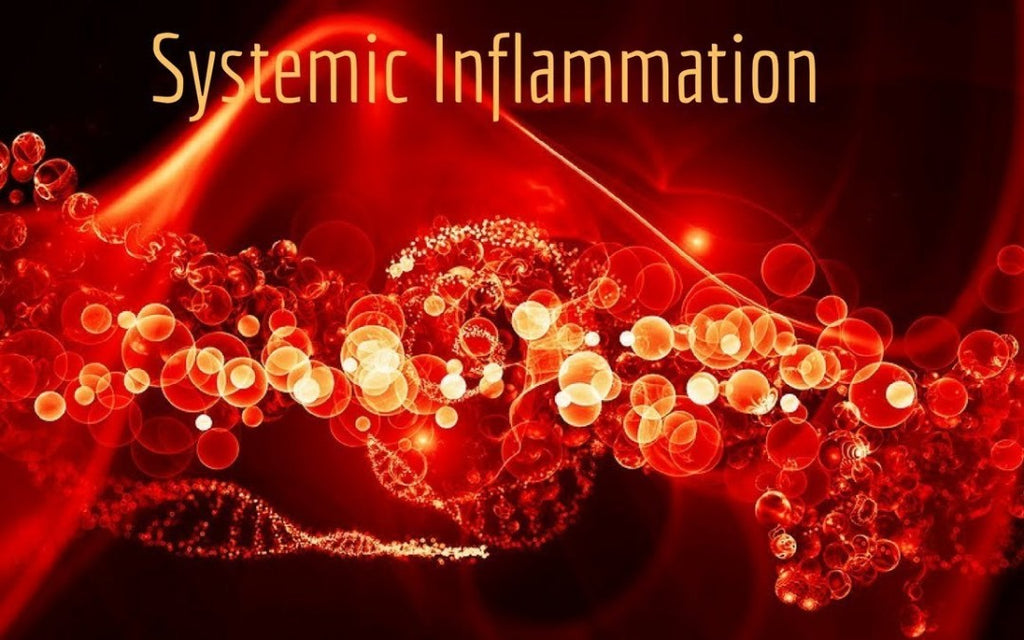
How much silent inflammation do you have?
Did you know there are blood tests that you can purchase yourself that can measure the actual amount of inflammation you currently have in your body? They are not meant to diagnose disease, but to give you actionable information about how aggressive you need to be in reducing the risks that come from elevated inflammation levels.
Some of our favorites:
C-Reactive Protein – Systemic inflammation, broadest measurement. Optimal levels under 0.55 men/1.50 women.
TNF Alpha – Chronic Fatigue, cancers, breakdown of bones, depression, IBD, insulin resistance, RA
Interleukin 6 – Fibromyalgia, autoimmune disorders, cancers, Alzheimer’s, depression, atherosclerosis
Again, elevated levels of these tests above are not used to diagnose any disease…but
to get active reducing their levels to avoid promotion of these diseases.
Related tests to considered
Homocysteine – vascular inflammation, stroke, cognitive decline. (Heart, Stroke)
Lp(a) – genetic, inflammatory to arteries, increases your risk for coronary heart disease, ischemic stroke. (Heart, Stroke)
Myleoperoxidase – inflammation linked to plaque formation in your artery. (Heart Risk)
PLAC – vascular-specific inflammatory marker critical in the formation of rupture-prone plaque. Novel risk. (Heart risk)
Food Allergy – sensitivity to certain foods by your immune response. (Leaky Gut/IBS/IBD)
Inflammation drugs side effects
Prescription medicines to treat inflammation have serious drawbacks.
TNFa blockers – Humira, Enbrel & Remicade
Common: Coughing, headaches, heartburn, nausea, vomiting, stomach pain, weakness
Less common: colds, flu, urinary tract infections
Rare: Lymphoma, skin cancer, serious brain reactions
IL6 blockers – Actemra, Kevzara
Common: Respiratory infections, headaches, high blood pressure, liver injury, low WBC
Less common: Tuberculosis, sepsis, fungal infections, shingles, Thrombocytopenia
Rare : Cancer
IL1b blockers – ilaris (only approved for rare auto-inflammatory diseases)
Curcumin over drugs

Curcumin
Curcumin can reduce all of the inflammation-promoting molecular targets for which the FDA currently approves single-targeted (and often dangerous) pharmaceuticals.
By blocking the inflammatory master molecule nuclear factor-kappaB (or NF-kB), curcumin blunts cancer-causing inflammation, slashing levels of inflammatory cytokines throughout the body.
Curcumin has been shown in studies to reduce C-Reactive Protein by up to 50%!
Curcumin has been found to reduce cognitive dysfunction, neural synaptic damage, amyloid plaque deposition, and oxidative damage. It has also been found to modulate the levels of cytokines in brain neurons (Cole 2004; Mishra 2008).
“(Curcumin)…blocked activated microglial cell-mediated neuronal cell damage under inflammatory conditions. Indeed, curcumin blocked the production of pro-inflammatory and cytotoxic mediators such as…TNF-alpha, IL-1alpha, and IL-6 produced from…microglia.” (Pharmazie. 2007 Dec;62(12):937-42)
Curcumin downregulates the expression of the NF-κB –regulated gene products such as COX-2, TNF, 5-LOX, IL-1, IL-6, IL-8, MIP-1α, adhesion molecules, c-reactive protein (CRP), CXCR-4, and others. Curcumin also binds to COX-2 and 5-LOX and to inhibit their activity.
Hundreds of clinical studies now show Curcumin’s efficacy in Alzheimer’s disease (AD), Parkinson’s disease, multiple sclerosis, epilepsy, cerebral injury, CVDs, cancer, allergy, asthma, bronchitis, colitis, rheumatoid arthritis, renal ischemia, psoriasis, diabetes, obesity, depression, fatigue, and AIDS.
Boswellia blocks 5-Lox

Boswellia
Unlike NSAIDs, boswellia fights inflammation by blocking pro-inflammatory 5-LOX (5-ipoxygenase). 5-LOX is the first enzyme in the metabolic pathway leading to the synthesis of leukotrienes, which are harmful inflammatory substances that scientists believe may have a direct influence on a number of disease processes. Efforts to develop 5-LOX inhibitors that target asthma and cancer suggest that boswellia extract may well have applications in managing these and other disease conditions.
Decreases the activity of another pro-inflammatory enzyme, HLE (human leukocyte elastase). HLE is associated with rheumatoid arthritis and respiratory illnesses such as pulmonary emphysema, cystic fibrosis, chronic bronchitis, and acute respiratory distress syndrome.
To date, the only anti-inflammatory compounds that have been found to inhibit both HLE and 5-LOX are those derived from boswellia.
Boswellic acid also inhibits the production of pro-inflammatory cytokines, including TNF-α, IL-1, IL-2, IL-6, IL-12, and IFN-γ, by suppressing the activation of NF-κB.
Boswellia has shown successful studies in cancer, cardiovascular disease, inflammatory bowel disease, arthritis, asthma and brain edema.
Stinging Nettle, Horsetail, Garlic, Celery

Anti-inflammatory herbs
Stinging Nettle –
“Our results suggests that part of the anti-inflammatory effect of Urtica extract may be ascribed to its inhibitory effect on NF-kappaB activation.” (FEBS Lett. 1999 Jan 8;442(1):89-94)
“After 8 weeks, IL-6 and hs-CRP showed a significant decrease in the intervention group (Stinging Nettle), compared to the control group.” (Pak J Biol Sci. 2011 Aug 1;14(15):775-9)
Garlic –
“Inhibition of nuclear factor-κB activation was the mechanism underlying this protective effect of garlic.” Molecules. 2014 Oct 31;19(11):17697-714
“Garlic resulted in a dose-dependent reduction of IL-6 and TNFalpha.” (Cytokine. 2015 Sep;75(1):117-26)
Celery –
“Celery Seed has been found to be at least as effective as aspirin, ibuprofen, and naproxen in suppressing arthritis…and reducing existing inflammation.” (Prog Drug Res. 2015;70:133-53)
“Celery Seed decreased the secretion of inflammatory cytokine TNF-α and IL-6 by 12-27%.” Am J Chin Med. 2015;43(3):443-55
Horsetail –
“Significant down regulatory effect on TNF-α and pre-inflammatory factor TNF-α.” (Pak J Pharm Sci. 2014 Nov;27:2019-23)
“Horsetail has an anti-inflammatory potential in model of inflammation.” (Open Rheumatol J. 2013 Dec 30;7:129-33)
You can order these blood blood tests from Life Extension from anywhere in the country, you will be sent a blood draw requisition and the closest LabCorp blood draw location to your house. You arrive there, take your blood test, and Life Extension will send you the results in a couple of weeks, with a phone number to speak with a health advisor for free to help interpret the results. To order your blood tests, go here

Leave a comment